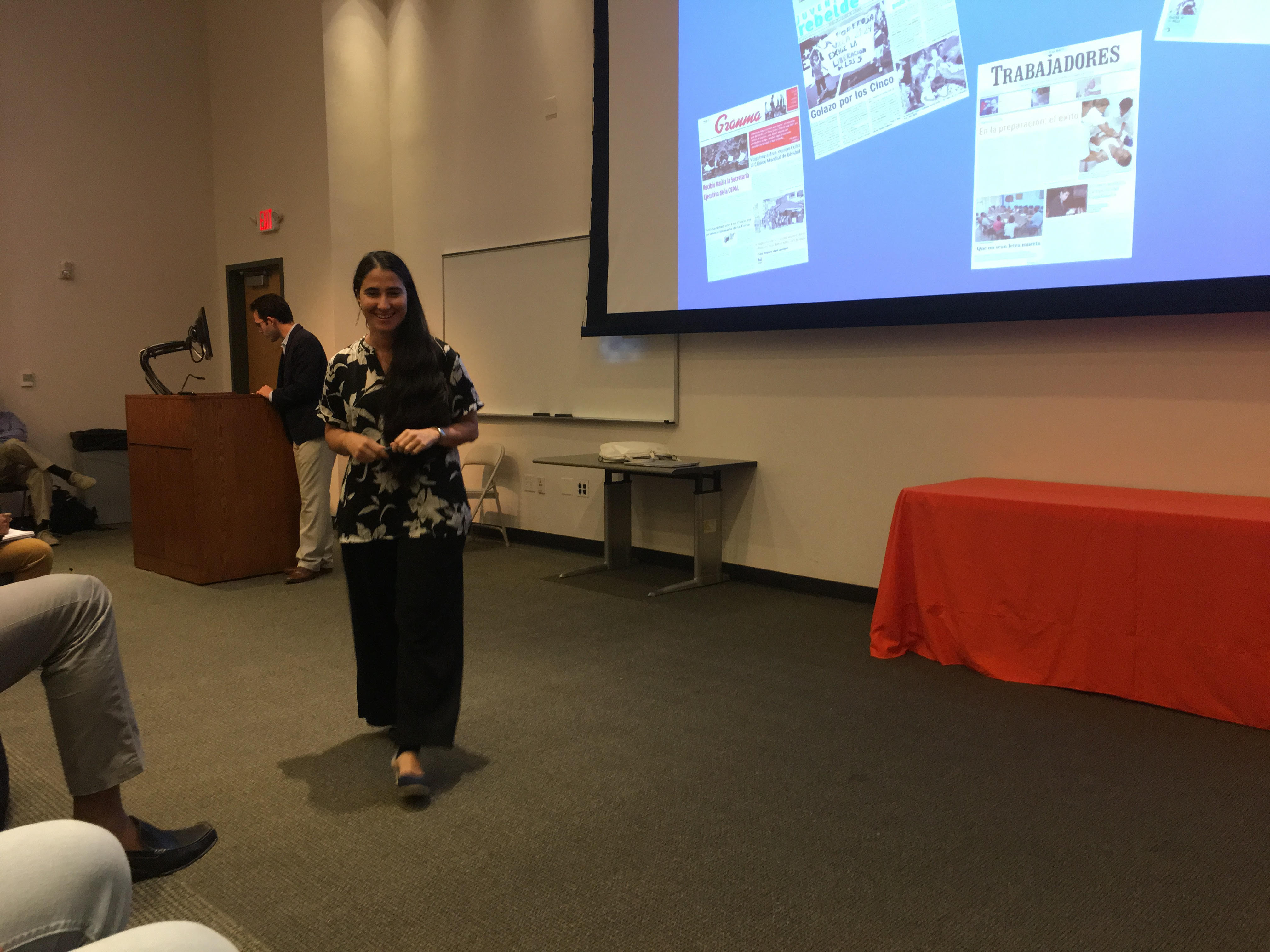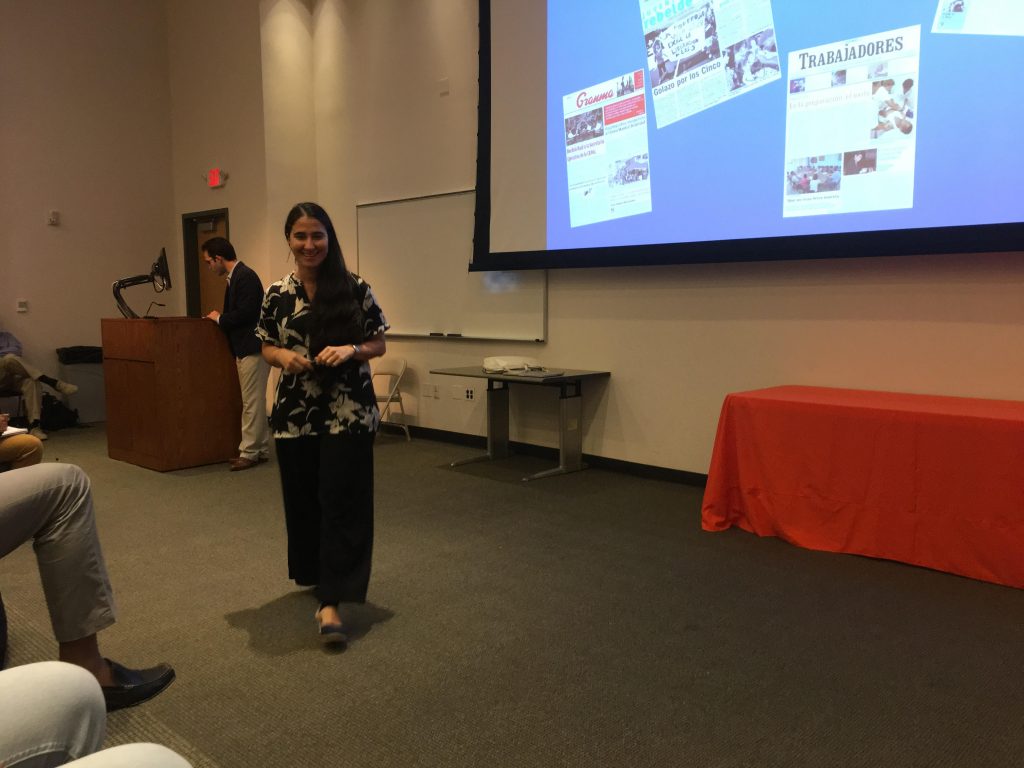

“La isla de los desconectados.” The island of the disconnected. That is the name Cuban journalist and blogger Yoani Sánchez said has come to define her country. In a world of rapidly growing technology and interconnections, Cuba has the lowest index of internet penetration in the Western hemisphere.
So, how did Sánchez become an expert of the internet in a country without the internet? For her and many others, freedom came in the form of a flash drive.
Sánchez spoke with a translator to students at the School of Communication Thursday and explained just how powerful that small piece of technology became to her as a Cuban citizen.
Press in Cuba became official propaganda and applause to the government. In a study she conducted, Sánchez explained that Cuban headlines were celebratory, using positive verbs to describe the state of the nation. However, verbs in newspaper headlines about foreign nations, like the U.S., were mostly negative.
Despite this monopoly of the press, Sánchez explained that technology still came. She built her first computer in 1994. Ten years later, Sánchez received her first flash drive with just 32 megabytes of memory, and her world of technology opened up.
“That memory flash that I had around my neck every day as a coveted and valued object is where I carried the data in which I opened and published my first blog,” Sánchez said.
Sánchez founded an award-winning blog called “Generación Y,” which details the reality of life in her country. She is also the founder of 14yMedio, the first independent digital media outlet in Cuba. The Cuban government almost immediately censored 14yMedio when it was launched.
“In May of 2014 they blocked our website so it could not be accessed by Cubans on the island,” she said, “However, there’s nothing more attractive than what is prohibited.”
Sánchez explained that this censorship awakened the curiosity of Cuban citizens. People turned to anonymous proxies, which are like tunnels that allow users to access censored websites.
“If you are walking through the streets of Havana and you meet someone who is under 45 and you ask them to tell you an anonymous proxy, they’ll probably say at least three,” she told students.
Sánchez’s talk to more than 100 students was met with a roar of applause from both students and staff.
On Monday, Sánchez gave the first lecture of the UM Cuba Forum at the Newman Alumni Center. President Julio Frenk also named Sánchez the first of UM’s Distinguished Presidential Fellows, a title given to individuals chosen for Frenk’s “100 Talents for 100 Years” initiative leading up to the university’s centennial.
Chantal Alba, a senior studying broadcast journalism, read Sánchez’s book “Havana Real: One Woman Fights to Tell the Truth about Cuba Today” and had the opportunity to speak with Sánchez about the book before the lecture.
“She went through hell and more, but she has gotten far as a journalist and people believe in her. She publicizes everything, and that’s why the government wants her to stop,” Alba said.
Freshman and film major Lincoln Rodon was also moved by the speech. Both of his parents are from Cuba, but Rodon said he did not know how restricted the Cuban press is.
“How prehistoric they are in terms of technology was really shocking to me,” he said.
To Sánchez, this lack of technology has lead to detrimental stereotypes, too. She said the glamorization of Cuba’s 1950s-era society must change.
“We are not a country of a sepia photograph and postcard of the 20th century. We are a country that is strapped in a straightjacket of the 20th century with talented people who want to be and feel a part of the 21st century,” she said.
The thirst for modernity has left people frustrated, but Sánchez said she believes technology is slowly breaking down those barriers.
“One day, when Cuba is a free and democratic country, in one public square we have to make a monument to the USB,” she said. “That small technological object has made us more free than any activist, public figure or political figure. And I’m going to be at the opening of that monument.”
Through the university fellowship, Sánchez will become a member of the UM community and teach a non-credit course in the spring of 2017 called “New Cuban Voices.”






